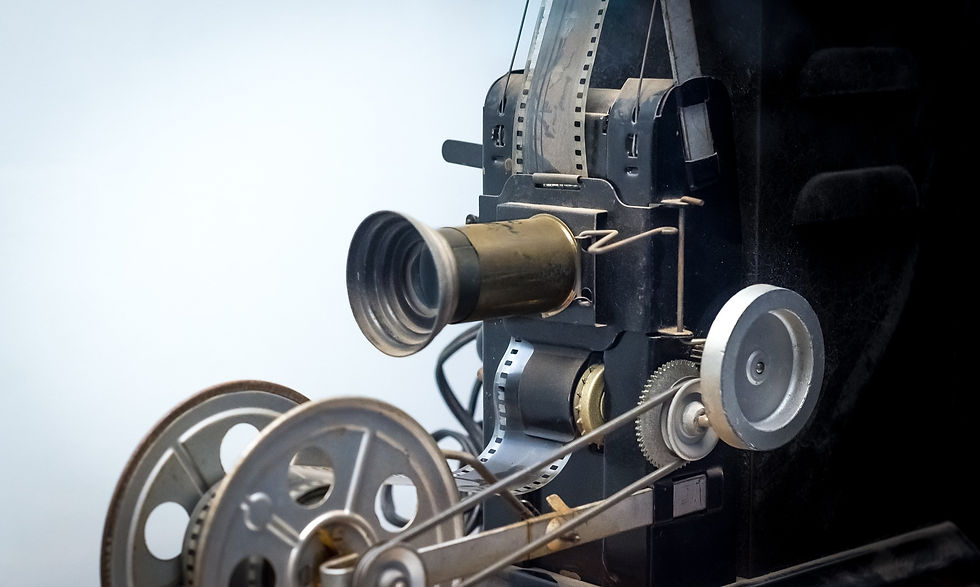I read recently that Javier Bardem refuses to watch his own films. If someone that beautiful can’t bear to watch himself back, what chance the rest of us?

That’s in my mind because I’ve been spending time recently helping to make a series of video tutorials for Year 10 and 11 students to use in preparation for the poetry element of their GCSE exam.
And watching myself back has been horrible. Particularly as I’ve been editing the films so I haven’t been able to hide my eyes from my worst mannerisms.
It made me think, however, about the skills that 21st century teachers, will have to develop.
I don’t just mean watching yourself back - that will always be painful. Nor do I mean the technical skills of lighting, camerawork, editing; though those skills will be increasingly important to us.
I really mean the skills of constructing effective, online courses that students will be able to access remotely, whenever they want and which they will find helpful in their learning.
We can’t turn our eyes from this.
We have to accept that for some elements of our job, the old model of a teacher talking to a room full of students is not necessarily the best one. Video can be better.
There are some simple and obvious reasons. You can’t pause and rewind a live teacher because you didn’t understand the first time. Or because you were distracted. Or because you were absent. You can’t re-watch the teacher on the bus on the way to school to prepare for the lesson.
I’m thinking mainly here about the delivery of ‘content’, the instructional part of our job, the giving and spreading of information.
That may prove to be quite a limited view of something we could do better with video - but it’s a place to start.
By the way, I’m not suggesting for a moment that video or online teaching will replace the live teacher.
It shouldn’t and it won’t.
Fundamentally, learning is an organic process. We learn from and with other people. It’s based on forming good relationships with people who know a bit more than you.
But I’m equally certain we could use video to improve the learning process. As long as we accept and understand that we want it to do different things. Precisely defining the relationship between the online and offline worlds is crucial.
Peter Hirst of the MIT Sloan School of Management captured this in a 2015 article in the Harvard Business Review. He contrasted the approach which sought simply to mimic the in-person experience with the more exciting approach being pioneered by MIT and Harvard via their EdX platform.
[This approach] is really not trying to mimic what we would do in the physical world, but starting from an entirely digital form, and really being very thoughtful about what the learning outcomes are that we’re trying to achieve, and how can the technology enable us to achieve those outcomes. There are many things that are very different about how you would design learning and work, if you really are doing it from a digital-first standpoint.
There’s a lot to think about here.
How do we make the online content engaging and interactive? Which material is best delivered online and which is best in person? How does the online fit within the wider context of the syllabus? How do we personalise it for the individual student?
Most importantly, how do we maintain the personal connection between the teacher and student?
I think this has been one of the main differences between the MOOCs I have completed and the MOOCs I have begun with good intentions and then forgotten about. The best ones have found ways of replicating or simulating that central relationship, whether by occasional video conferences, weekly video summaries or active use of forums.
Incidentally, it’s the answer to the question, ‘Why make your own films, why not just find something on Youtube?’
It’s because you can make them more personal, more recognisable, more clearly tailored to the needs of the student watching. Don’t underestimate the power of that!
I’ve just completed my online GDPR training (General Data Protection Regulation). It was slick and professionally made. The points were clear and accurate.
I got 100% in the end of course quiz. Whoooo! Go me!
Three days later I couldn’t remember any of it. I’ve just had to look up what GDPR stood for!
Because as well as being slick and professional, it was completely anodyne. Who cares? A box on someone’s spreadsheet will have been ticked. But I didn’t learn much.
If we really want to help our students to learn, we need to engage with some of these questions.
And we need to actively develop new skills. How many teacher training courses teach video editing? They should!
And more than anything, we need to get over the pain of watching ourselves back!

Komentáře